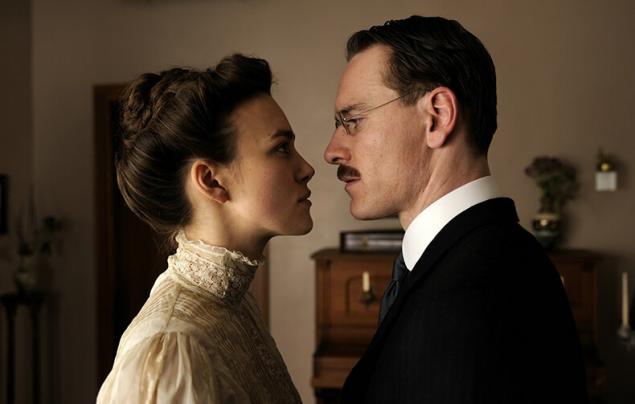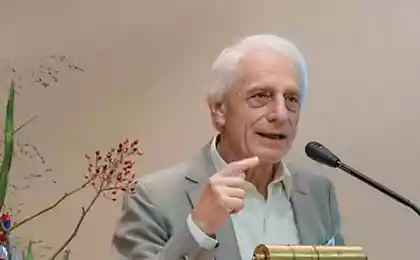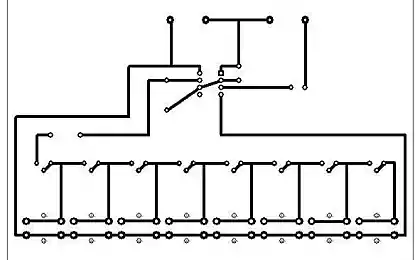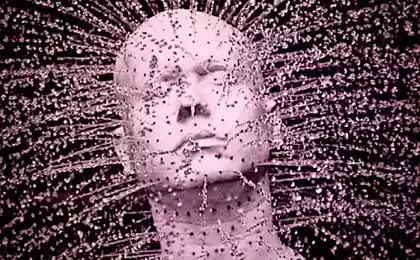541
Do NOT treat your neighbor
Dual relationship in psychotherapy occurs when the therapist acts in relation to his client in any other role (relative, friend, lover, employer, boss, subordinate, customer or supplier of other services, etc.). The ban on dual relationships set out in the ethics codes of many, if not all, of the psychological community. In countries where psychological activity is licensed, in violation of this prohibition is possible to lose the practice.
However, there are people who either never heard about such rule, or do not understand its meaning. About the meaning I want to talk to. For many working therapists have learned to relationships outside of the office, and also to explain to friends and family, why not have the opportunity to work with them "as a psychologist". But common words about professional ethics, as a rule, do not explain.

Failure of a psychologist is most easily explained by unwillingness to work for free. But have we not the tradition unselfishly to help others? Why is the psychologist taking the selfless assistance in repairing the computer from his friend could not repay the same, a little "repairing" his psyche? And why friends refuse this service even for money?
I must say: I don't see a problem in sharing professional knowledge. To give explanations on the subject, to make diagnostic assumptions and even testing out on friends any equipment — all this can be offered completely free of charge and to mutual pleasure.
Not to mention the fact, to comfort, to listen, to support — all part of normal relationships with people, and psychologists do it just like everyone else. Psychology permeates people's lives, and each is a bit of a psychologist to their neighbors. In varying degrees and at different levels, and this is perfectly normal.
But professional therapy is not only knowledge, advice and support. And where we are talking about the danger of dual relationships — it is important to pay attention to the word "relationship." Psychotherapy is a specially organized, very specific and not afraid of the word, unnatural relationship. Analogues in real life — no. They are restricted to the given framework and are created for specific purposes.
If people come to a psychologist — he was dissatisfied with the quality of their life and begins to suspect that the reason is somewhere in him. The client may tell the therapist about your life outside of the office, and therapist are willing to support him, but simultaneously he will observe how the client builds relations directly here. With him, with a therapist.
What would the correct concepts people may have been originally - with the deepening of the relationship with the therapist, he will try to repeat its model of relations with the world and win back the injury that struck him the most important people in his life. And habitually try to protect themselves — by avoiding contact, depreciation, retaliatory aggression. He will project his inner model for a real relationship. In the same way as he does in life. This is his world, he sees. And his world view often proves. Because employees are sufficiently reactive and are also inclined to protect themselves.
Unlike the people in my life, the therapist, first, anywhere from contact not going anywhere, and secondly- try to build with the client a different modality relations. Such that the client, firstly, understood as what's happening to him is because he makes, and secondly- was able to survive all the difficult feelings associated with it and a third one tried relationships in a model, and then to transfer this experience in their real life.
As it happens — is a separate big topic for another article. Here it is important to understand how to answer the question: why did I call the client-therapeutic relationship is unnatural? Is this impossible with the desire and ability to properly do their loved ones?
I guess I can try, but then in full growth raises the problem of balance in the relationship. And the accompanying question — why should I? Or him?

All we are in relationship with people who want to give and receive. The way it happens. It's an exchange at the level of relationships and feelings, often understand intuitively without specially stipulated conditions. People can pay to each other their needs and expectations, to be disappointed, if needs are not met, to adjust or not to adjust their behaviour, to negotiate, to draw conclusions. In other words, people in real relationships — share expectations and actions.
What is the difference between the therapeutic relationship? The fact that the therapist in this relationship — there are no personal needs are addressed to the client. From the context of the client-therapeutic relationship — completely removed the expectations of the therapist. This is called therapeutic position.
The therapist does not need that the client was somehow - for him, for therapist. Everything in this relationship makes the therapist — he makes for a client. During deep work the therapist, as a rule, causes strong (and very different, not always positive) feelings the client with the therapist to share confidential, therapeutic situation actualizes the trauma of attachment, the therapist are intense shifts, etc.
Significance — means power. The therapist there is a lot of power, the use of which is in their own interests is unacceptable, and is limited to therapeutic ethics.That is why any business, friendship, sexual and other relationships with the therapist outside of the office — are using customer. Even if a customer wanted and he offered doesn't matter. The client in this relationship is too biased to take full responsibility for their decisions.
As balance is restored in this relationship? Very simple — money. Payment in therapy is an important factor, "Abdoulaye" any tension in the relationship. This does not mean that the feelings in this relationship is not true, including the feelings of the therapist to the client.
It is important to understand the conditionality of this relationship is not equal to the act. The client-therapeutic relationship is a sincere and deep relationship. Their Convention is that the symmetry in the relationship is restored not by mutual satisfaction of personal needs, and through symbolic actions. Payment is a guarantee of unselfishness and purity of the intentions of the therapist: he does not expect the client nothing but money for the work :)
So, in therapy creates a special kind of relationship in which the therapist works FOR the client, and does not require a return in the form of gratitude, feelings, care, care, any anticipated actions. And as compensation acts payment.

And now back to therapeutic work with friends and family. I already think that this paragraph can not write, so the obvious conclusions. There is no doubt that in the life of a therapist is a living person, and in relations with people, oddly enough, is also something expected from them.
What happens when the person I'm both a partner, lover or friend, to which I draw your expectations, but also customer — to which there can be no expectations? There is something that reflects the term “dual relationship” dichotomy needs and goals. I sincerely wish your beloved happy and realize his needs, but it is expected that his happiness and his needs don't conflict with mine, because our lives are connected.
How and in whose favor I will solve this contradiction? I will take advantage of its therapeutic power? As I will share is that I'm in a relationship doing for a client, and that — for myself in a relationship with him? And as a similar contradiction between therapeutic work and care about saving the relationship — decide for yourself client? Or it is assumed that this contradiction with loved ones will never occur? But it is also the expectation, moreover, very naive. I will add that even with high levels of awareness, expectations may be unconscious. Yes, the therapist, too, is unconscious.
Be sure that the therapeutic relationship is not compensated by the payment — sure to be compensated with something else. But that's what, in what form and how voluntarily - the big question.
The love of the father: the scenario of the FATE of your daughter
The MYSTERY of co-optation
I believe that the desire to “selflessly” treat your loved ones is strongly tied to the desire of self-assertion and power. But even if we assume that the therapist is so disinterested and realized that maybe all this control and will act only in the interests of those close to it means that he just carries this duality within.
That is, creates for himself intrapersonal splitting, and spends to maintain this splitting all their strength and resources. Instead of direct neighbor to another good therapist, if we have a neighbor such a need.published
Author: Julia Liepaia
Source: www.b17.ru/article/30363/
However, there are people who either never heard about such rule, or do not understand its meaning. About the meaning I want to talk to. For many working therapists have learned to relationships outside of the office, and also to explain to friends and family, why not have the opportunity to work with them "as a psychologist". But common words about professional ethics, as a rule, do not explain.

Failure of a psychologist is most easily explained by unwillingness to work for free. But have we not the tradition unselfishly to help others? Why is the psychologist taking the selfless assistance in repairing the computer from his friend could not repay the same, a little "repairing" his psyche? And why friends refuse this service even for money?
I must say: I don't see a problem in sharing professional knowledge. To give explanations on the subject, to make diagnostic assumptions and even testing out on friends any equipment — all this can be offered completely free of charge and to mutual pleasure.
Not to mention the fact, to comfort, to listen, to support — all part of normal relationships with people, and psychologists do it just like everyone else. Psychology permeates people's lives, and each is a bit of a psychologist to their neighbors. In varying degrees and at different levels, and this is perfectly normal.
But professional therapy is not only knowledge, advice and support. And where we are talking about the danger of dual relationships — it is important to pay attention to the word "relationship." Psychotherapy is a specially organized, very specific and not afraid of the word, unnatural relationship. Analogues in real life — no. They are restricted to the given framework and are created for specific purposes.
If people come to a psychologist — he was dissatisfied with the quality of their life and begins to suspect that the reason is somewhere in him. The client may tell the therapist about your life outside of the office, and therapist are willing to support him, but simultaneously he will observe how the client builds relations directly here. With him, with a therapist.
What would the correct concepts people may have been originally - with the deepening of the relationship with the therapist, he will try to repeat its model of relations with the world and win back the injury that struck him the most important people in his life. And habitually try to protect themselves — by avoiding contact, depreciation, retaliatory aggression. He will project his inner model for a real relationship. In the same way as he does in life. This is his world, he sees. And his world view often proves. Because employees are sufficiently reactive and are also inclined to protect themselves.
Unlike the people in my life, the therapist, first, anywhere from contact not going anywhere, and secondly- try to build with the client a different modality relations. Such that the client, firstly, understood as what's happening to him is because he makes, and secondly- was able to survive all the difficult feelings associated with it and a third one tried relationships in a model, and then to transfer this experience in their real life.
As it happens — is a separate big topic for another article. Here it is important to understand how to answer the question: why did I call the client-therapeutic relationship is unnatural? Is this impossible with the desire and ability to properly do their loved ones?
I guess I can try, but then in full growth raises the problem of balance in the relationship. And the accompanying question — why should I? Or him?

All we are in relationship with people who want to give and receive. The way it happens. It's an exchange at the level of relationships and feelings, often understand intuitively without specially stipulated conditions. People can pay to each other their needs and expectations, to be disappointed, if needs are not met, to adjust or not to adjust their behaviour, to negotiate, to draw conclusions. In other words, people in real relationships — share expectations and actions.
What is the difference between the therapeutic relationship? The fact that the therapist in this relationship — there are no personal needs are addressed to the client. From the context of the client-therapeutic relationship — completely removed the expectations of the therapist. This is called therapeutic position.
The therapist does not need that the client was somehow - for him, for therapist. Everything in this relationship makes the therapist — he makes for a client. During deep work the therapist, as a rule, causes strong (and very different, not always positive) feelings the client with the therapist to share confidential, therapeutic situation actualizes the trauma of attachment, the therapist are intense shifts, etc.
Significance — means power. The therapist there is a lot of power, the use of which is in their own interests is unacceptable, and is limited to therapeutic ethics.That is why any business, friendship, sexual and other relationships with the therapist outside of the office — are using customer. Even if a customer wanted and he offered doesn't matter. The client in this relationship is too biased to take full responsibility for their decisions.
As balance is restored in this relationship? Very simple — money. Payment in therapy is an important factor, "Abdoulaye" any tension in the relationship. This does not mean that the feelings in this relationship is not true, including the feelings of the therapist to the client.
It is important to understand the conditionality of this relationship is not equal to the act. The client-therapeutic relationship is a sincere and deep relationship. Their Convention is that the symmetry in the relationship is restored not by mutual satisfaction of personal needs, and through symbolic actions. Payment is a guarantee of unselfishness and purity of the intentions of the therapist: he does not expect the client nothing but money for the work :)
So, in therapy creates a special kind of relationship in which the therapist works FOR the client, and does not require a return in the form of gratitude, feelings, care, care, any anticipated actions. And as compensation acts payment.

And now back to therapeutic work with friends and family. I already think that this paragraph can not write, so the obvious conclusions. There is no doubt that in the life of a therapist is a living person, and in relations with people, oddly enough, is also something expected from them.
What happens when the person I'm both a partner, lover or friend, to which I draw your expectations, but also customer — to which there can be no expectations? There is something that reflects the term “dual relationship” dichotomy needs and goals. I sincerely wish your beloved happy and realize his needs, but it is expected that his happiness and his needs don't conflict with mine, because our lives are connected.
How and in whose favor I will solve this contradiction? I will take advantage of its therapeutic power? As I will share is that I'm in a relationship doing for a client, and that — for myself in a relationship with him? And as a similar contradiction between therapeutic work and care about saving the relationship — decide for yourself client? Or it is assumed that this contradiction with loved ones will never occur? But it is also the expectation, moreover, very naive. I will add that even with high levels of awareness, expectations may be unconscious. Yes, the therapist, too, is unconscious.
Be sure that the therapeutic relationship is not compensated by the payment — sure to be compensated with something else. But that's what, in what form and how voluntarily - the big question.
The love of the father: the scenario of the FATE of your daughter
The MYSTERY of co-optation
I believe that the desire to “selflessly” treat your loved ones is strongly tied to the desire of self-assertion and power. But even if we assume that the therapist is so disinterested and realized that maybe all this control and will act only in the interests of those close to it means that he just carries this duality within.
That is, creates for himself intrapersonal splitting, and spends to maintain this splitting all their strength and resources. Instead of direct neighbor to another good therapist, if we have a neighbor such a need.published
Author: Julia Liepaia
Source: www.b17.ru/article/30363/























